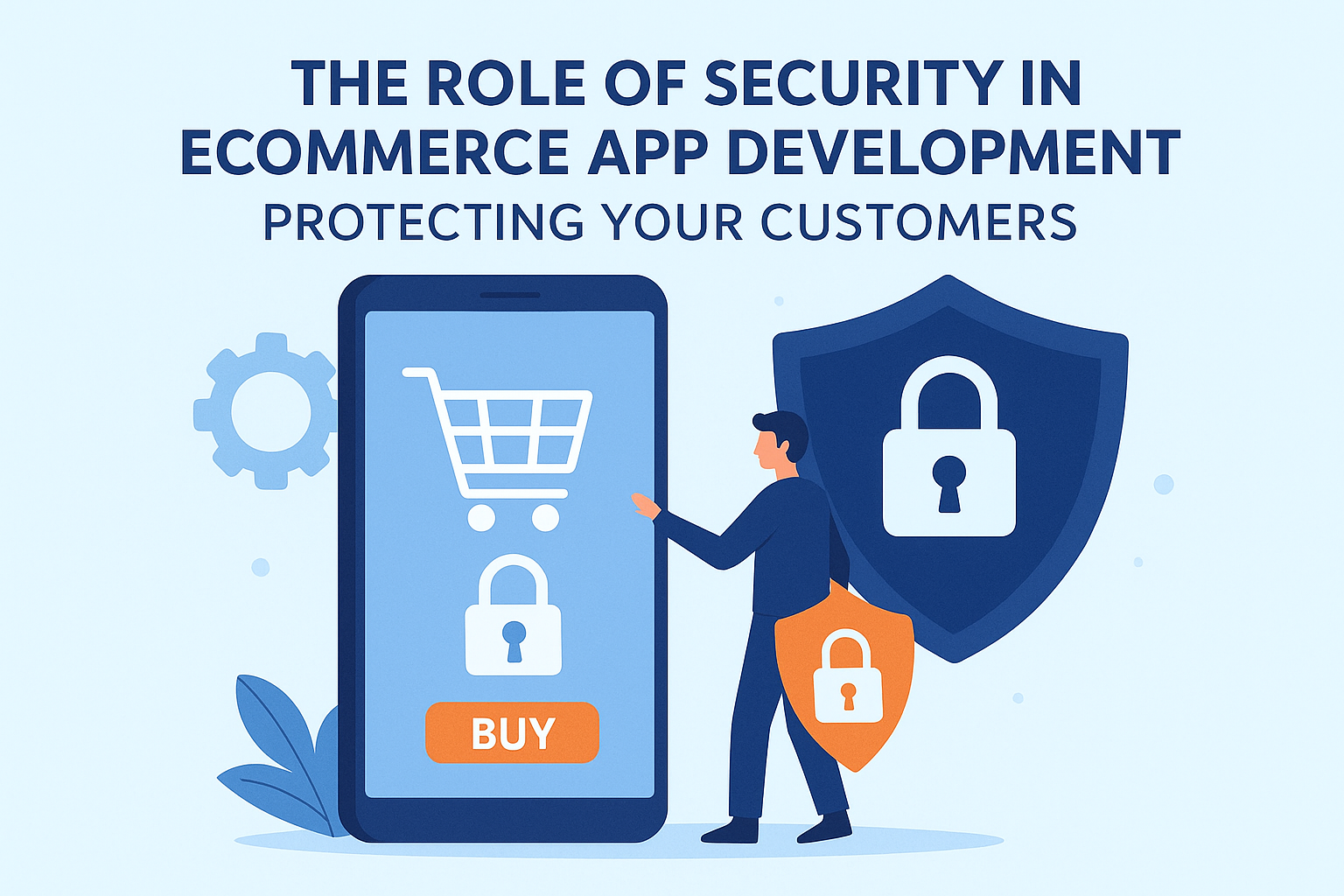In today’s digital marketplace, customers expect not only convenience but also complete confidence that their personal and financial information is protected. As online shopping continues to rise, security has become one of the most critical components of any ecommerce platform. For businesses building digital storefronts, security is no longer optional—it is a core pillar of trust. Whether you are working with an ecommerce app development team or building a solution in-house, prioritizing protection at every stage ensures long-term success and customer loyalty.
Security threats evolve constantly, and malicious actors are more sophisticated than ever. This means ecommerce applications must be built with robust, multi-layered defenses that protect sensitive data such as credit card numbers, addresses, login credentials, and transaction histories. Here are the key ways security shapes the entire development process and why it matters so significantly for customer protection.
1. Establishing Trust and Credibility
Shoppers will only use an online store if they trust it. Any sign of vulnerability—slow loading pages, sketchy checkout flows, or a lack of visible security badges—can immediately undermine confidence. A single security breach can permanently damage a brand’s reputation, resulting in lost customers and costly legal consequences. Building secure systems helps companies demonstrate integrity and protect their customer relationships.
2. Safeguarding Sensitive Customer Data
A major component of protecting customers is defending their personal and financial data. Developers must implement strong encryption protocols such as TLS (Transport Layer Security) to ensure data transmitted between the user and the server cannot be intercepted. Additionally, sensitive information stored in databases should be encrypted at rest, preventing unauthorized access even if attackers breach the system.
Tokenization is another effective method in secure ecommerce applications. Instead of storing actual card details, applications store randomly generated tokens that hold no exploitable value for attackers. This drastically reduces the risk associated with handling payment information.
3. Preventing Fraud and Unauthorized Access
Fraud is one of the biggest threats facing online retailers. Attackers frequently use stolen credentials to break into customer accounts, manipulate transactions, or access saved payment details. Modern ecommerce apps must integrate powerful authentication mechanisms, including:
- Multi-factor authentication (MFA)
- Strong password policies
- Biometric login options
- Behavioral analytics to detect unusual activities
These mechanisms create multiple layers of verification, making it significantly more difficult for unauthorized users to exploit the app.
4. Securing the Payment Gateway
The checkout process is one of the most vulnerable areas of any ecommerce application. Developers must adhere to Payment Card Industry Data Security Standards (PCI DSS) to ensure safe handling of card information. Choosing secure, reputable payment gateways reduces exposure to risk and ensures that financial transactions are handled on trusted, encrypted systems.
Secure payment integration protects not only buyers but also merchants, reducing the likelihood of disputes, chargebacks, and fraudulent transactions.
5. Protecting Against Common Cyber Threats
Ecommerce apps face a range of attacks including SQL injection, cross-site scripting (XSS), DDoS attacks, and man-in-the-middle intrusions. To defend against these threats, security-focused development practices are essential:
- Input validation: prevents malicious code from entering the system.
- Secure APIs: ensures communication between services cannot be exploited.
- Firewalls and intrusion detection systems: monitor and block suspicious activities.
- Rate limiting: prevents bots from overwhelming login or checkout processes.
Regular security testing—including penetration testing and vulnerability scanning—helps identify weaknesses before hackers do.
6. Ensuring Compliance With Regulations
Laws such as GDPR, CCPA, and other data protection regulations require businesses to follow strict guidelines for handling personal information. Failing to comply can lead to severe fines and legal trouble. Secure development ensures that data is collected, stored, and processed in accordance with these regulations.
Customers also feel more confident when businesses demonstrate compliance through transparent privacy policies and consent mechanisms.
7. Continuous Monitoring and Updates
Security is not something that can be completed once and ignored. Threats evolve, new vulnerabilities emerge, and software dependencies can become outdated. Ecommerce apps must be continuously monitored to maintain high security standards.
Regular updates, security patches, and automated monitoring tools help ensure the system remains protected. Logging and analytics systems also play an important role in identifying suspicious behavior quickly, allowing rapid response before major damage occurs.
8. Training and Secure Development Practices
A secure application starts with a knowledgeable development team. When businesses hire an ecommerce app development company, they benefit from specialized expertise in secure coding practices, risk management, and infrastructure protection. Developers trained in security-first methodologies can anticipate threats and build systems that inherently reduce risk.
This includes adopting secure DevOps (DevSecOps), where security is integrated into every stage of development—from planning to deployment.
Conclusion
Security is the backbone of any successful ecommerce application. It enables trust, protects sensitive data, prevents fraud, ensures compliance, and supports long-term business growth. In a world where digital threats continue to rise, prioritizing security is not just a technical requirement but a commitment to customers. By integrating strong, proactive security measures into the development process, businesses can create robust ecommerce experiences that customers rely on with confidence.









